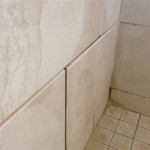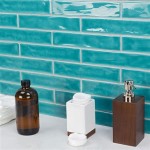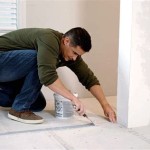Do You Need Cement Board Under Tile Floor?
Whether you're embarking on a bathroom renovation or a kitchen remodel, the question of whether to install cement board under your tile floor is an important one. Cement board is a type of backer board that provides a stable and moisture-resistant surface for tile installation. While it's not always necessary, there are certain circumstances where using cement board can be highly beneficial.
Benefits of Using Cement Board Under Tile Floor
- Moisture Resistance: Cement board is highly moisture-resistant, making it an ideal choice for wet areas such as bathrooms, showers, and kitchens. It prevents water from seeping into the subfloor and damaging the structure.
- Strength and Stability: Cement board is a strong and stable material that provides a solid base for tile installation. It helps prevent tiles from cracking or breaking due to movement or shifting.
- Flat Surface: Cement board helps create a flat and even surface for tile installation. This ensures that your tiles are level and free of unevenness.
- Adhesion: Cement board provides excellent adhesion for thin-set mortar, the adhesive used to bond tiles to the surface. This strong bond helps prevent tiles from becoming loose or detaching.
When to Use Cement Board Under Tile Floor
- Wet Areas: In areas that are prone to moisture, such as bathrooms, showers, and kitchens, cement board is highly recommended. Its moisture resistance helps protect the subfloor and prevent water damage.
- Uneven Subfloors: If your subfloor is uneven or has imperfections, cement board can be used to level and smooth the surface. This provides a flat and stable base for tile installation.
- Heavy Tiles: For large or heavy tiles, cement board provides additional support to prevent tiles from cracking or breaking.
- Exterior Applications: In outdoor applications, such as patios or balconies, cement board is recommended to withstand moisture and temperature fluctuations.
When You Can Skip Cement Board
- Dry Areas: In areas that are not prone to moisture, such as living rooms or bedrooms, cement board may not be necessary if the subfloor is level and stable.
- Small Tiles: For small or lightweight tiles, a moisture-resistant backer board other than cement board may suffice.
Conclusion
The decision of whether or not to use cement board under your tile floor depends on the specific application and conditions in your home. If you're installing tile in a wet area, have an uneven subfloor, are using heavy tiles, or are installing tiles outdoors, cement board is highly recommended. For dry areas with level subfloors and small tiles, you may be able to skip cement board. Consult with a professional contractor if you're unsure about whether cement board is necessary for your project.
How To Install Cement Board On A Floor Diy Family Handyman

How To Install Hardie Backer Cement Board On Floors James Pros

Cement Board Installation On Floors 5 Mistakes To Avoid Diytileguy

Cement Backerboard Floor Tile Installation Uncookie Cutter

Cement Backerboard Floor Tile Installation Uncookie Cutter

Installing Cement Backerboard For Tile Flooring Hometips

How To Install Cement Board The Home Depot

Thinset Under Cement Board Yes Or No Ord Ceramic Tile

How To Install Cement Board Cbu For Floor Tile

Tiling With Cement Board Instead Of Ditra Making It Lovely
Related Posts








